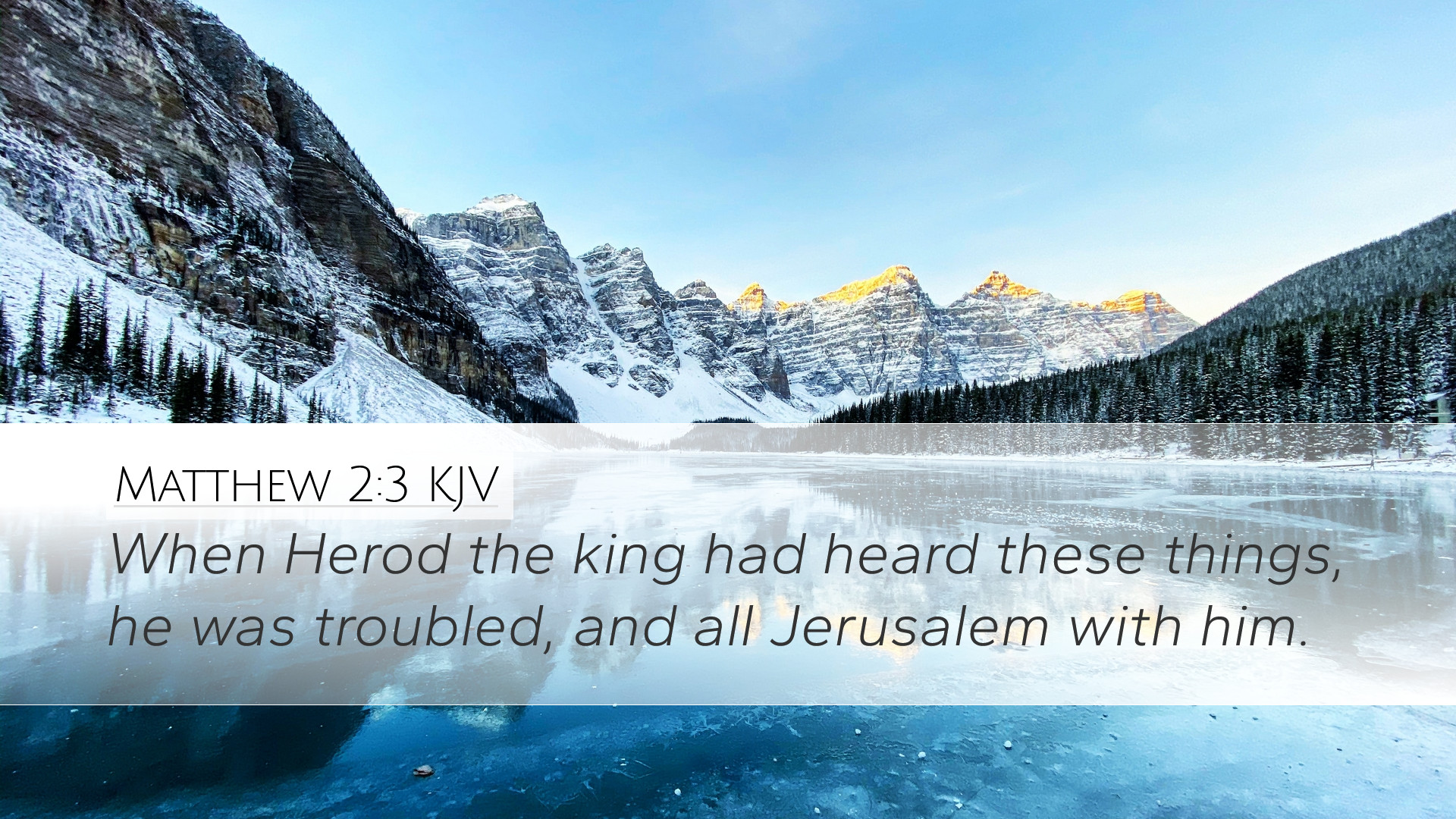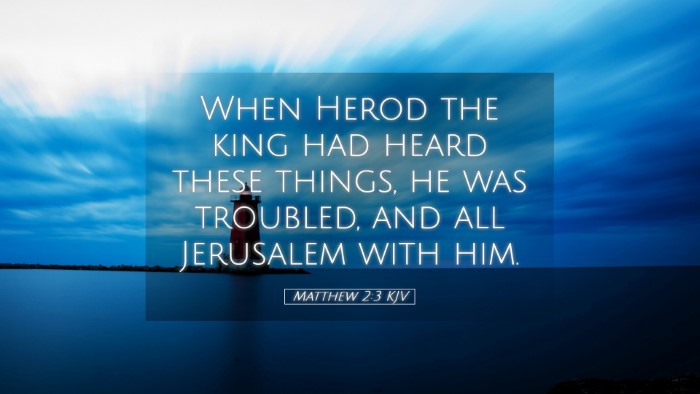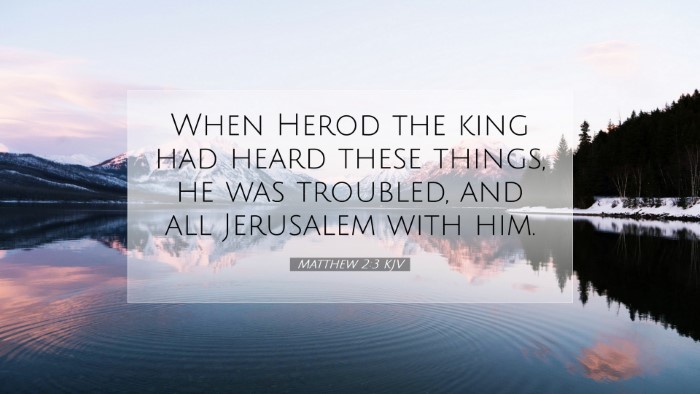Commentary on Matthew 2:3
Bible Verse: "When Herod the king heard this, he was troubled, and all Jerusalem with him." (Matthew 2:3)
Introduction
The verse Matthew 2:3 offers profound insights into the response of King Herod and the citizens of Jerusalem to the news of a newborn king. This moment not only marks a critical point in the narrative of Christ's birth but also illustrates the political and spiritual tensions present at that time. In this commentary, we shall delve into the historical, theological, and practical implications of this verse, drawing on insights from recognized public domain commentaries.
Contextual Background
The context of Matthew 2:3 is essential for understanding the significance of Herod's reaction. Following the visit of the Magi, who seek the newborn Jesus, Herod learns of this birth that poses a challenge to his rule. Herod, a ruler known for his paranoia and brutality, exemplifies the conflicts between secular authority and divine intention in the incarnation of Christ.
Herod's Reaction: A Study of Fear
Matthew Henry suggests that Herod's trouble symbolizes a reaction rooted in fear and insecurity. As a king who secured his throne through manipulation and violence, the news of a new king incites a profound sense of threat:
- Fear of Loss: Herod feared losing power and control, emphasizing the precarious nature of earthly authority.
- Paranoia of the King: His historical reputation for cruelty informs his reaction, illustrating how fear can lead to destructive choices.
Historical Significance
According to Adam Clarke, understanding Herod's historical context is crucial. Herod the Great, appointed by the Romans, was not a legitimate king by Jewish standards. His reign was marked by opposition from various Jewish factions. Thus, the news of a king born "King of the Jews" threatened the already unstable political landscape:
- Historical Opposition: Several factions within Jerusalem harbored animosity toward Herodian rule, fearing a disruption in their power dynamics.
- A Fulfillment of Prophecy: This narrative fulfills earlier prophetic declarations regarding the Messiah, creating further tension.
Impact on Jerusalem: Collective Response
The phrase "all Jerusalem with him" indicates that Herod's fear was not his alone but spread through the city. Albert Barnes emphasizes that this collective anxiety reflects the spiritual deadness and lack of awareness among the people:
- Failure to Recognize Messiah: The residents of Jerusalem were troubled, indicating their failure to recognize the Messianic significance of Christ's birth.
- Societal Turmoil: The unrest signals how spiritual blindness can affect an entire community, leading to civil unease and moral confusion.
Theological Implications
The reaction of Herod and Jerusalem carries vital theological messages. Matthew Henry notes:
- Divine Sovereignty: The text illustrates God’s sovereign plan in the midst of human opposition. Despite the king's fear, God's will will ultimately prevail.
- Human Rebellion: The troubled response acts as a microcosm of humanity's natural disposition against divine authority.
Spiritual Lessons for Today
The ongoing relevance of Matthew 2:3 for modern believers cannot be understated. The reaction of Herod and the citizens presents several reflections for today's Christians:
- Vigilance against Spiritual Complacency: Just as those in Jerusalem were troubled by the news without understanding its significance, believers today must remain vigilant to recognize God's movements in our lives.
- The Cost of Kingdom Authority: Herod's reaction prompts contemplation on the nature of authority—are we willing to surrender our own rule in the face of Christ’s kingship?
- Hope in Troubling Times: For those who trust in God's providence, like the Magi and Joseph, troubling news can lead to redemptive outcomes when aligned with faith.
Concluding Thoughts
Matthew 2:3 encapsulates the tension between human authority and divine purpose, illustrating how the advent of Christ was met with fear and resistance. It serves to remind modern believers of the underlying spiritual battles today, the call to recognize Christ’s reign, and the hope that remains anchored in faith amidst turmoil. In the narrative of Herod and Jerusalem, we find a powerful lesson about the nature of God’s kingdom that transcends time, inviting us into deeper reflection and commitment to the call of the Gospel.


